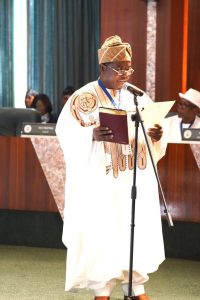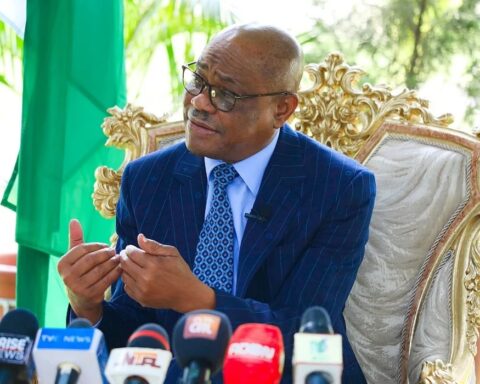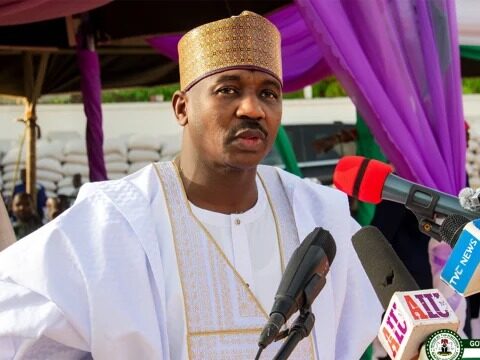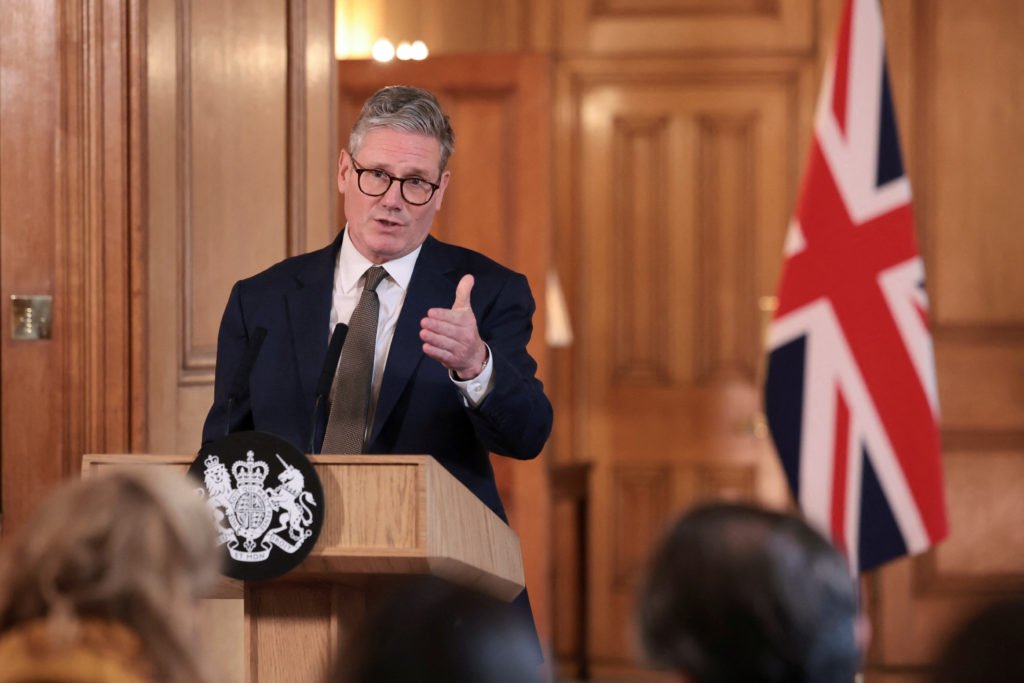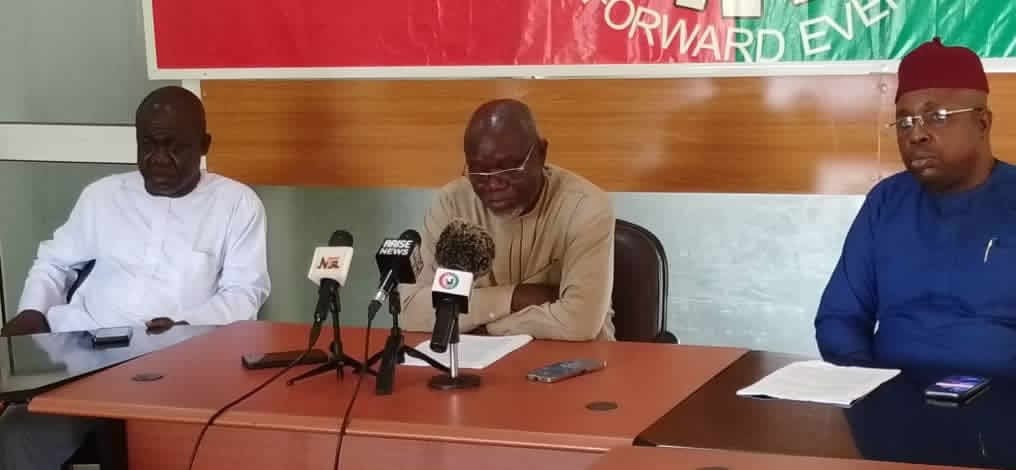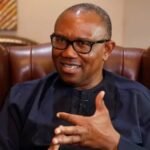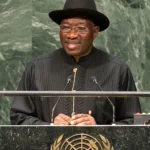Prof. Joash Amupitan’s, SAN, taking oath of office as new INEC chairman.
By Chukwudi Abiandu
In the bright, expectant Thursday, October 23, 2025 morning in Abuja, Professor Joash Ojo Amupitan, Senior Advocate of Nigeria, strode into the headquarters of the Independent National Electoral Commission (INEC). Clad in a flowing white agbada and a gold cap that glinted under the lights, he bore the calm confidence of a man aware that the weight of a nation’s democratic destiny now rested on his shoulders.
Hours earlier, at the State House, President Bola Ahmed Tinubu had administered the oath of office, formally installing him as Nigeria’s new electoral umpire. Now, before top management, dignitaries, and a hall brimming with quiet anticipation, Professor Amupitan was stepping into history.
“This is not just a transition,” said Acting Chairman, Mrs. May Agbamuche-Mbu, as she handed him the official documents of office. “It is a significant moment in the life of our Commission and in our nation’s democratic journey.”
For a brief moment, there was silence, the kind that signals the crossing of eras.
Mrs. Agbamuche-Mbu, who had held the reins in acting capacity, was visibly emotional but confident. She reminded the new helmsman that his tenure was beginning at a defining moment, with final preparations already underway for the Anambra Governorship Election scheduled for November 8, 2025.
“You are assuming office at a most crucial time,” she said. “Elections are the lifeblood of democracy, and the expectations of Nigerians have never been higher.”
Behind her, seated in quiet dignity, were INEC’s 23 departmental directors, the Commission’s “generals on the field of electioneering,” as she fondly called them. The atmosphere was formal but warm, the air thick with the unspoken understanding that a new journey was about to begin.
Then came the symbolic gesture that lifted the mood of the entire gathering, the entrance of a delegation from the University of Jos, Amupitan’s alma mater, led by its Vice-Chancellor and senior management. It was a moment of institutional pride: the university celebrating one of its own, now at the apex of Nigeria’s democratic machinery. His wife, Professor Yemisi Amupitan, and their children sat nearby, beaming quietly.
When he finally took the microphone, the new INEC Chairman spoke with a lawyer’s precision and a reformer’s conviction.
“I am deeply grateful to President Bola Ahmed Tinubu for the confidence reposed in me,” he began. “But I am also aware of the weight of this responsibility; the sacred duty of protecting the integrity of our elections and restoring public faith in the process.”
He paused briefly, scanning the room. “The eyes of the nation are upon us,” he said, his voice firm but measured. “And it is our duty to rise to that occasion.”
There was something both professorial and pastoral about his tone — a mix of intellect and empathy. He promised to run an administration anchored on integrity, transparency, and discipline. But beyond institutional language, Amupitan’s message was clear: INEC must heal the trust deficit that has long plagued Nigeria’s elections.
“The Anambra election,” he said, “is our first test — a pivotal opportunity to show Nigerians that we mean business, that we can deliver free, fair, and credible polls.”
He spoke passionately about teamwork and the need to dismantle bureaucratic silos that often slow the Commission’s internal processes. “We must foster open communication and create an environment where every voice is heard and valued,” he urged.
And in a nod to the thousands of staff scattered across Nigeria’s 774 local government areas, he made a promise that drew quiet applause: “We will expect a lot from you, but we must also be honest enough to meet your expectations. Staff welfare will be a priority. Fairness and justice will guide every decision we make.”
By the time he concluded with a simple but stirring appeal — “Together, let us uphold the values of democracy and work tirelessly to strengthen the legitimacy of our elections” — there was little doubt that INEC was once again at an inflection point.
Outside, as the ceremony wound down, the Abuja sun had grown warmer. Guests clustered in small groups, some speaking of the enormity of the task ahead, others hopeful that perhaps, just perhaps, a new spirit of reform had arrived at Nigeria’s most scrutinized institution.
In a country where elections often feel like national stress tests, Professor Joash Amupitan’s first day in office was not merely administrative — it was symbolic. A changing of the guard. A call to renewal. And, for many watching from across the country, a faint but genuine flicker of hope that Nigeria’s democracy might still redeem itself through the ballot.
